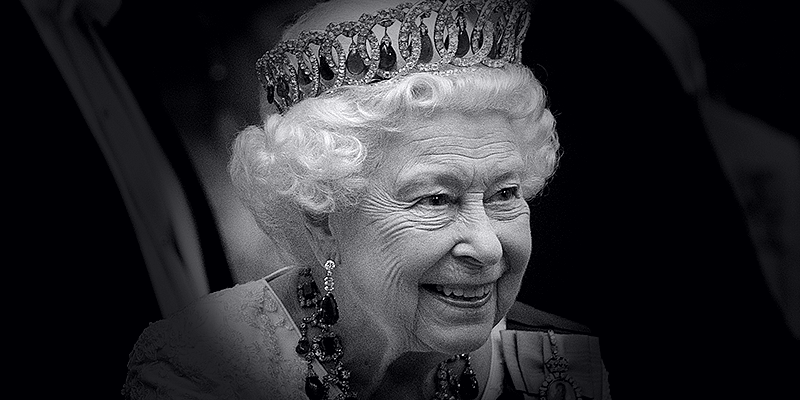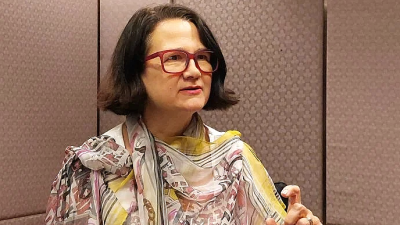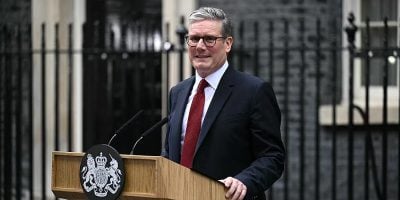Even as the curtain has fallen on Queen Elizabeth II’s mortal life, life still has to go on for millions of her subjects who will determine whether their country will return the years of glory in her absence.
The passing of Queen Elizabeth II marks the end of an era.
For her seven-decade reign, the Queen witnessed earth-moving developments of the world and partook in its history-making. Her departure has not only disheartened the Britons but also received tremendous attention the world over, as leaders and commoners sent in their condolences and paid tribute.
US president Joe Biden said she “was more than a monarch. She defined an era…was a stateswoman of unmatched dignity and constancy.”
French prime minister Élisabeth Borne said the Queen witnessed a century of hopes and difficulties, was a model of great courage and an icon for generations to come, while German chancellor Olaf Scholz said “her commitment to German-British reconciliation after the horrors of World War II will remain unforgotten.”
All these point to the fact that the Queen was more than a monarch deeply revered by her subjects in the UK; she was also held in high esteem by the international community and was veritably a role model for world royalty.
The British society has been shrouded in gloom after the Queen’s death, local businesses shuttered and commercial and sporting activities canceled or deferred.
Tens of thousands of people laid flowers outside Buckingham Palace and sang God Save the Queen, while cab drivers descended on The Mall to pay tribute to her.
The unrivaled respect she commanded is closely linked to the successful role she played in Britain’s constitutional monarchy and her unwavering commitment in placing the nation’s priority above her own.
In 1947, Queen Elizabeth II, then a princess, pledged to the people that “my whole life whether it be long or short shall be devoted to your service.” And indeed, she kept her promise and served the people of Britain until she drew her last breath.
As the symbol of British monarchy, her death not only signifies the end of an era, but could further shrink the country’s already waning international clout.

73-year-old King Charles III has been proclaimed the new king of the United Kingdom. He also promised to devote himself to the country, but his image, prestige and influence pale when compared to his mother. It remains an immense challenge for him to effectively perform his duties as monarch and to win over his subjects.
A 2022 YouGov poll showed that fewer than a third of respondents did not think Charles could make a good king, while another third believed he could. At the same time, over four-fifths of respondents thought the late Queen did her job fairly well or very well. This shows that Britons still have serious reservations about the new King’s performance.
Unlike the Queen who put herself above politics and had won praises for her neutral stand during her long decades of reign, Charles was in the past known for the persistent display of his political position. Now that he has taken the throne, he will have to strictly uphold political neutrality and not to be seen as an intervening monarch.
Meanwhile, Britain is facing unprecedented challenges. The mess left behind by Boris Johnson is now confronting his successor Liz Truss who, completely devoid of a honeymoon period, is already facing a trust crisis before she has even started her work.
A poll published last week showed that 67% of respondents did not have much faith in the future Truss administration adopting the right measures to tackle the spiraling living costs. Only 19% believed she could handle this problem.
The erstwhile empire upon which the sun never sets, Britain is today dragged into a quagmire of economic and other problems.
Immediately after taking office, Truss reversed the government’s earlier decision to slap a dramatic 80% spike in energy tariffs from October, and cap the typical household energy bills at £2,500 annually until 2024. That said, the UK’s spiraling inflation is much more complicated than this and the upswing in living cost is expected to continue. The “bread and butter” issue will keep haunting the Brits as they mourn the death of their Queen.
Britain went through the highs and lows over the decades, but the Queen managed to act as a stabilizing force in lifting the people’s morale and bringing them together. With her passing, who now has this stature to play the role well?
Even as the curtain has fallen on Queen Elizabeth II’s mortal life, life still has to go on for millions of her subjects who will determine whether their country will return the years of glory in her absence.
ADVERTISEMENT
ADVERTISEMENT








































